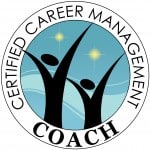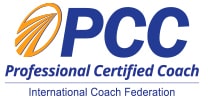
Self-discovery is a simple, yet powerful solution you’ve been looking for.
Know yourself.
Using a “Who” not “What” approach will help you uncover the steps needed and provide answers to what you have been seeking.
Quite often, people who are considering making a change in their career look at “what” to do or not do and the “what if’s” that may or (may not) happen as a result of what they decide to do. Making decisions with this approach will create a tug-of-war in your mind which may leave you frustrated and confused.
Instead of focusing on what your options are, shift your focus to who you are. That’s the ticket to your success!
So, why is this method more productive?
Self-discovery sheds light on valuable information that allows you to understand yourself at a deeper level. Hitting the pause button in your busy life and spending time reflecting on a few key areas, you will start to see patterns about who you are and what you’re “all about”. That’s where you will find your gold!
Start by taking an inventory of what makes you YOU. Here are a few key questions to get you started:
1. What are your professional needs?
These are the things that you must have in order to be your best at work.
For example, are you someone who needs autonomy? If so, you are likely to be independent and in control of what you do. A job that has a micro-managing culture probably won’t be a good match for you. On the flip side, a job that allows you the freedom to go about your duties and responsibilities according to your own agenda and plans for reaching your goals – Bingo! That would be a better fit to meet your need for autonomy.
Are you someone who needs order? If this sounds like you, you like consistency and structure in your day. A job that requires you to change your day on the fly by attending meetings that weren’t scheduled, taking on projects that weren’t properly planned out, or working in an office setting that is cluttered or chaotic will drive you up the wall. However, a job that allows you to be prepared, organized, and plan-ahead will better meet your need for order in the workplace.
2. What are your strengths?
These are the things you are naturally good at doing. Are you an effective communicator? Are you able to connect well with others? Are you analytical? Are you innovative?
Identifying your strengths and putting them into action on a daily basis is an important key to your success. Research shows that people are more likely to be fulfilled in their careers if they are utilizing their strengths regularly throughout their workday.
3. What do you desire?
This is not about what you want such as a title, money or prestige. It’s more about what fills you up at the heart-level or what you are most passionate about. Do you have a love of education and teaching others? Perhaps you have a passion for inspiring leaders to be more socially conscious within an organization? Do you feel most alive when expressing your thoughts and ideas in creative writing?
No matter what your desire is, the key is to look at what you are drawn towards. Find ways to combine your interests with how you want to spend your time professionally.
4. What motivates you?
What is your reason for wanting a new career? Why is it important for you to make this change at this stage in your professional life? If your reason is not compelling enough, you will likely struggle to have the energy required to move you towards your goals. However, if there is sufficient meaning attached to what you say you want to do, then you are more likely to take action and be successful.
Like a detective trying to solve a mystery, we are looking for clues. These “clues” just happen to be about you and what drives you. Remember, no two people are alike! Finding your ideal career fit is a process of discovery. By looking at your needs, strengths, desires, and motivation you will begin to see the elements that need to be in place for you to thrive professionally. Self-discovery is an invaluable tool that provides you with information that will help you as you seek out your dream career.
JOLIE STEERS COACHING. ALL RIGHTS RESERVED. COPYRIGHT 2016


